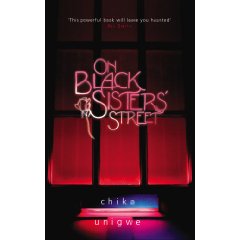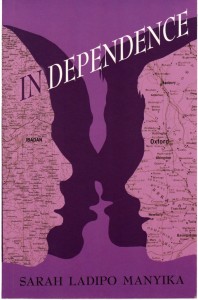 This post was first published on Clarissa’s Blog today as part of a guest-writing project. Clarissa a cool Professor of Spanish language and literature at my department will also be a guest-blogger on KTravula.com in the coming days. Watch out.
This post was first published on Clarissa’s Blog today as part of a guest-writing project. Clarissa a cool Professor of Spanish language and literature at my department will also be a guest-blogger on KTravula.com in the coming days. Watch out.
___________________________________________________
Prompted by two related observations in my mind at the moment…
One was the search term in my blog statistics today. Some random person had apparently been directed to my blog by searching for the term “barking in a foreign language”. This is not so strange when I realize that I had once made a blog post about the cartoon that I found on the glass entrance to my department.
The second was this very comprehensive article, and discussion, in the New York times about why, or whether Americans will really, learn Chinese. I enjoyed reading it and picked up a few nuggets, one of which was the fact that the interest of many Americans in learning foreign languages came from political and economic expediencies: They learnt Russian during the Cold War, Arabic after 9/11, Spanish because of their neighbours, and now Chinese in the wake of China’s global economic uprising. Thus said the writers of the article. Not me, even though I have learnt also from a few interactions on the matter that many American students now study Chinese for the purpose of gaining leverage in the emerging economic world.
The article doesn’t mention Yoruba, Swahili, or any of the other minority world languages being learnt in Universities all over America, but that is not the point – I guess. As much as this point in the article could be seen as a generalization of perhaps a genuine interest of students in expanding their worldviews, I believe that there’s something interesting about the said American foreign language fad. For a fact, the govenment of the United States has shown more interest in languages spoken in parts of the world with some economic, political or cultural relevance to its own survival. At the Fulbright conference in December, I had made friends with a guy called Osama from Yemen, a Fulbrighter on a similar programme. That was before the Christmas Day bombing attempt, and its subsequent link to Yemen. After the terror attempt, I asked a friend if she thought that Yemen will now get a lesser slot in subsequent Fulbright programmes because of the terrorism incendent, and she said NO. Quite the opposite, she said. If this all rings true, then Hausa will also soon become another language of interest for Americans in the coming years, because of the failed bombing attempt of Christmas day. This creed can then be summarized somewhat thusly:
“If he has tried to kick your ass, kick his ass too, and then learn his language. You might understand him more, and thus prevent any further aggression.”
Whether this is true, or whether it ever works as planned in the long term, is of course subject to debate.
 Over the coming weeks, and perhaps for a longer while to come, I will be featuring Guest-Bloggers on this blog. I’ve had the idea for a while now of inviting my favourite bloggers, commenters, or just plain readers to make blog posts here about what concerns them. I like the idea of such interaction of ideas and opinions, and I hope that it will also open up new audiences both for ktravula.com and those bloggers and writers whose writing gets featured. If you are interested in being a guest-blogger on ktravula.com, let me know, send me a mail at kt@ktravula.com and surprise me with your subject of choice. There are no boundaries, I think. 🙂
Over the coming weeks, and perhaps for a longer while to come, I will be featuring Guest-Bloggers on this blog. I’ve had the idea for a while now of inviting my favourite bloggers, commenters, or just plain readers to make blog posts here about what concerns them. I like the idea of such interaction of ideas and opinions, and I hope that it will also open up new audiences both for ktravula.com and those bloggers and writers whose writing gets featured. If you are interested in being a guest-blogger on ktravula.com, let me know, send me a mail at kt@ktravula.com and surprise me with your subject of choice. There are no boundaries, I think. 🙂


